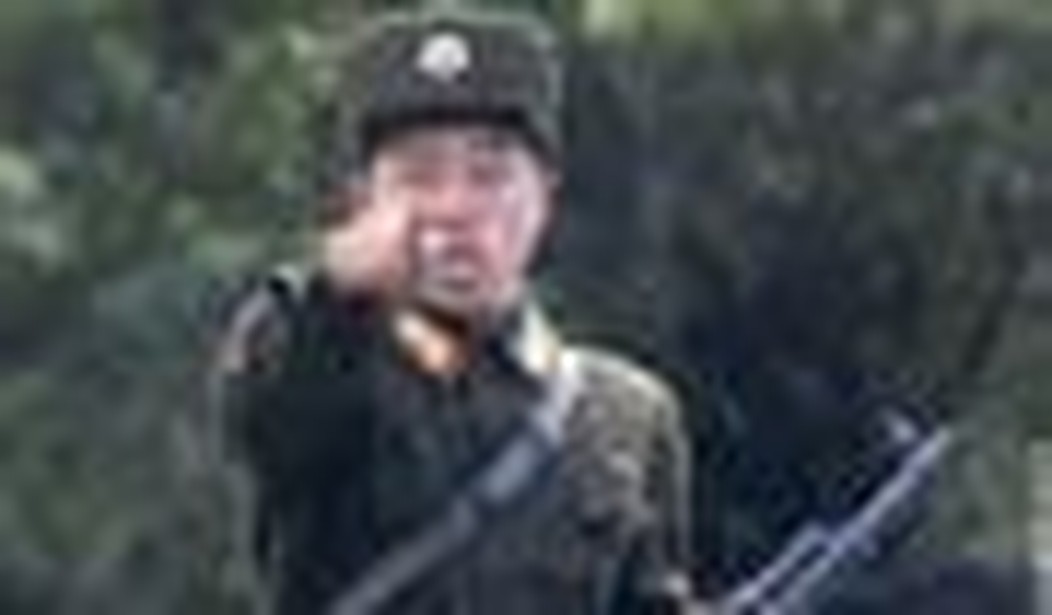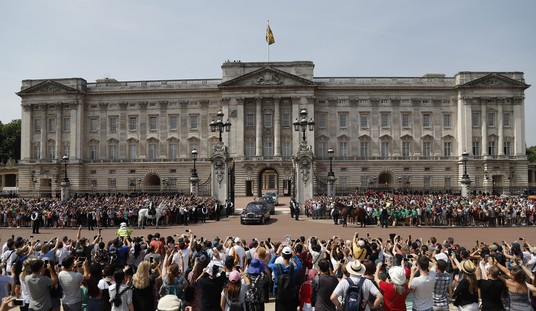The conflict with North Korea is a Catch-22. On the one hand, ignoring the regime’s provocations guarantees they will continue and will escalate. On the other, the West does not want to risk war and destabilization makes it more likely that corrupt officials will sell expertise, weapons, and even WMDs to high-paying customers. At the moment, there is no viable opposition group that can replace the regime. The West seems stuck, but a proper understanding of the regime’s behavior does offer a way to deter Kim Jong-Il and Kim Jong-Un, his youngest son and successor.
The artillery barrage was part of a methodical escalation. Prior to the attack, Kim Jong-Il and his son met with the military officials in charge of the area from which the artillery would be fired. Shortly before this, the regime showed off a new uranium enrichment site to an American nuclear expert and told him that 2,000 centrifuges had been installed. The North Koreans also shot at a South Korean border post on October 29 and began constructing a lightwater reactor.
These provocations coincide with a purge of the military and the governing political party. Defectors say that older officers are being replaced as it is unlikely that the older leaders will follow a 26-year old with no military experience and no qualifications to lead them beyond his last name. About 1,000 officials in the party have been arrested and 20 to 30 executed to stifle any dissent or potential internal challenges. The simultaneous provocations and purge indicate the two are aimed at a common objective: securing the rise of Kim Jong-Un.
Knowing this, it appears the U.S. has two broad options: Ignore North Korea, denying the regime the tension it seeks, or react and potentially give the regime what it wants. The problem with the first option is that if Kim Jong-Il and his son feel a crisis is necessary for their survival, they will keep upping the ante until they get it. Dismissing them just guarantees greater provocations. That leaves the second option of retaliating, but this must be done in such a way that it discourages future aggression. The key is to cause a backlash among the military he’s trying to secure his hand over. If the provocations are done for stability, then we must make them result in instability. If their goal is to unite the regime, then division is what must happen.
South Korea, Japan, and the U.S. must build a Clintonesque “war room” that can immediately tell the truth about any provocation to the North Korean people and military, especially the soldiers that take part in any clash. Half of the North Korean population is now consuming foreign news media and an underground network exists to receive and deliver information. The personality cult that has sustained the government has, for the first time in its history, begun falling apart. If they hear a different story about how a clash happened than the one told by regime outlets, their new-found cynicism will cause them to consider it.
This political counterattack must be coupled with limited but impressive retaliation that hurts the military and unmistakably demonstrates the West’s military superiority. If handled properly, this embarrassment for the regime will undermine the North Korean forces’ confidence, shake the population’s faith in the military’s strength, and, most importantly, cause both the people and the military to question the wisdom of Kim Jong-Il and his son. The military won’t take kindly to paying the cost for a regime that has led them to depravity, especially if the leader is in his mid-20s and living lavishly.
Critics of this dual political-military approach will either argue that it is too risky or too weak; that the North Korean leadership is so evil and deranged that nothing short of death will stop them from aggressively acting out. Recent history shows that the regime is fearful of internal dissent, so much so that it is willing to modify its behavior to avoid it. When the public unprecedentedly voiced their outrage at a currency replacement plan in December 2009, the regime backpedaled and, amazingly, apologized. Kim Jong-Il executed an official for the blunder afterwards.
The regime’s retreat in the face of public opposition bears a lesson for the future. The regime will modify its behavior in response to significant internal opposition. If military aggression results in similar dissent instead of a closing of the ranks, then a similar response may occur. These short-term reactions to North Korea’s provocations can serve as a model for a long-term strategy of amplifying the dissent that intimidates the regime into containing itself.
There are risks that come with striking back at North Korea in these ways, but the risks are lower and more manageable than doing nothing. If we want to influence the regime’s behavior, we need to alter its perception of what brings it stability.









Join the conversation as a VIP Member